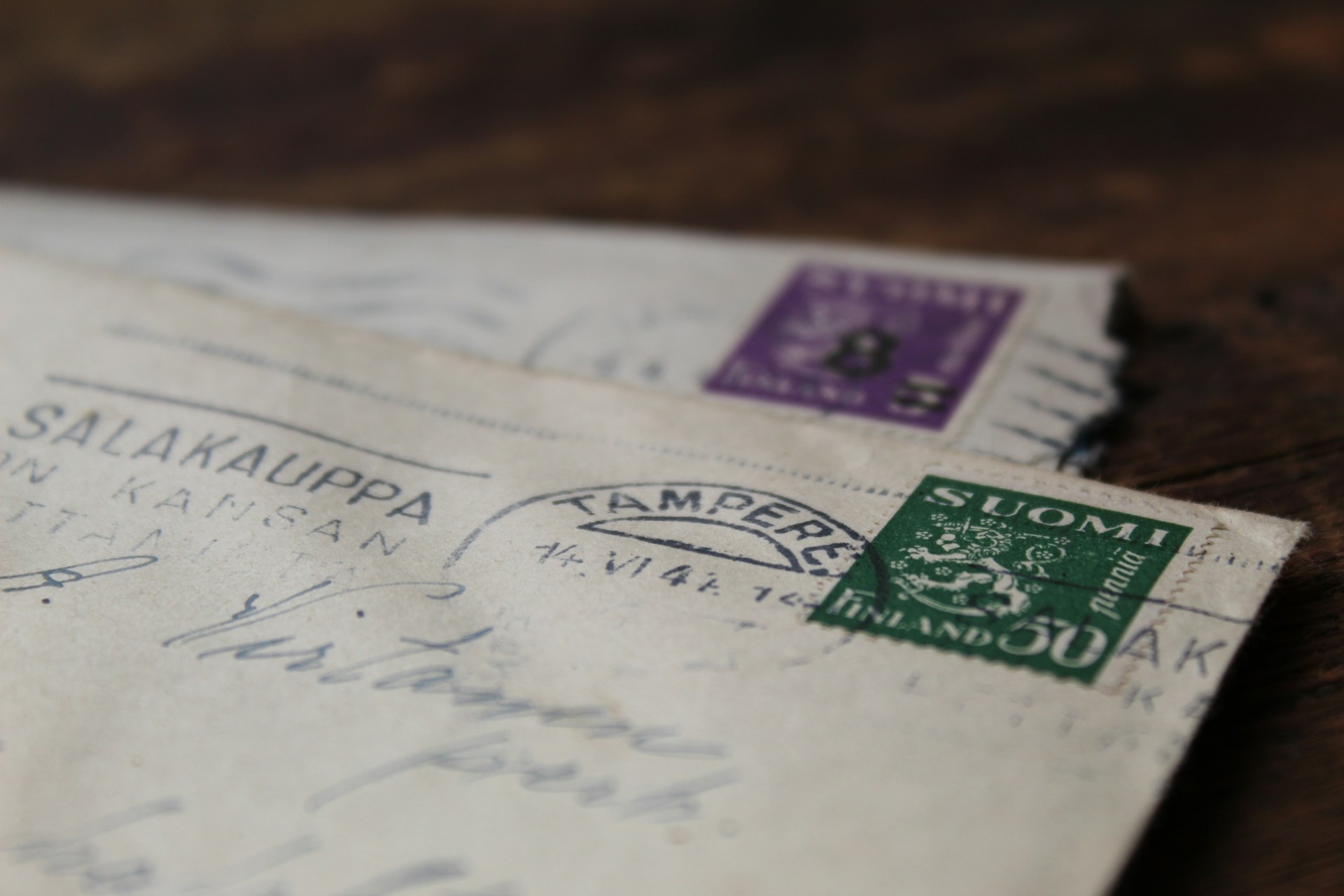The paper was worn, and smelled lightly of the mildew characteristic to the storage shelves in our basement, but the artwork was remarkably well preserved: black ink, on white or cream envelopes, the intricate drawings and hours of detail framed around the numbers and letters that signified my grandparents’ familiar address. On one, the lanky body of a man with the head of an Easter-esque rabbit, right eye weeping egg-sized tears onto the spears of grass below. Hatch marked across another was a tree with weathered bark, a heart carved into the trunk encircling his and my mother’s initials. Inside each was a folded stack of paper gently separated from its perforated edge, the contents of which I was forbidden to read.
We sat on our second-hand sofa while she explained that this had been a man, a boy she had once known, who had sent her letters long after they’d parted ways, while she was clearly dating my father but everyone was separated by the vast, interstate highways that ran to and from their colleges. She hadn’t led him on, but hadn’t clearly said no, either, an abstract in-between that she spoke of as kindness, but which I read as subdued encouragement fueled by the flattery-induced high of being declared an object of obsession. The man sent thinly veiled declarations of love, and detailed accounts of his struggles with unmedicated depression, with his hopes for improvement pinned squarely on my mother returning his affections. But when I asked what had become of him, she simply shrugged. The letters stopped coming. She had never inquired as to why. Diplomas were obtained, lives were started. My parents married.
I think of this in adulthood, in the witching hour of a sleepless July night, staring at the ceiling while my boyfriend dozes beside me with one slack hand draped over my sunburned thigh. The air in his apartment is muggy, humid from rain that refuses to come and heat that will not break. I’ve been dating a man with depressive tendencies for nearly two years, though in contrast from the letter writer he is well medicated and treated by the usual therapists and prescription pad-carrying lab coats. Still, within the first few months of our pairing, I experienced the first of many downswings. “The French call it l’appel du vide,” he offered as explanation for the threats his own brain produced, as if a flowerier phrase than suicidal urge would soften the blow or romanticize the pain.
This one too is a cartoonist, by some strange coincidence. As our relationship grows I collect all of his drawings like cherished artifacts, be they made for me or absentmindedly doodled out of boredom–corners of printer stock spontaneously ripped for the sake of their blank space, full pages of watercolor paper slightly curled with the drying of applied moisture. I stack them haphazardly in a metal Lazzaroni tin, though I’m nearly certain that for me this will be the last man, the only man, and save his art as memento rather than tribute.
In the years since knowing the letter writer, my mother had birthed two children. My father proved to be a bit of a disappointment–a failing family business, a decade out of a job without a real attempt to look for another, shrinking efforts at gestures of romance or appreciation. I wonder if she sometimes opined on the choice made, the fate entangled, the parallel future lost. That day of their first unveiling, I had eyed the letters with a strange mix of reverence and disgust. In the full throes of pubescent turmoil, I simultaneously craved someone who would feel such an unstoppable tie to me, and pushed away the unwelcome image of my mother as someone who men fought and fawned over. I couldn’t quite call it jealousy but, mouth full of braces, towering in height over half of the boys in my grade, the word did hold some truth.
With the distance and wisdom of adulthood, I wish I could reach out and pour the lessons learned into my developing psyche: loving and being loved by an artist with depression is not the glamorous experience of musehood I had come to understand. Long distance pining, through pages of wanting sprawled across paper with languid sadness, cannot communicate the subtext of being chained to someone who feels the call of the final sleep, who constantly fights the urge not to stay. It is an unwavering, vigilant, gnawing fear that your lover will slip back into shadow so long and thick that they’ll cease to be able to see through it. Perhaps my mother sensed this and held herself at arms length to avoid the responsibility.
I dream of a happy ending for the man with the ink-covered envelopes, that he found someone to hold his hand and share his worry, that he was able to channel the depth of his longing into something other than self-sabotage. I consider, darkly, that my mother could have been some final vestige, her lack of reciprocation causing more than the end of a correspondence. Beside me, my own lovely worry stirs faintly, rustling our shared sheets, pill bottles on the nightstand. I know that I will always ask why, if his drawings stop coming. I hope that I am reason enough for him to stay.
